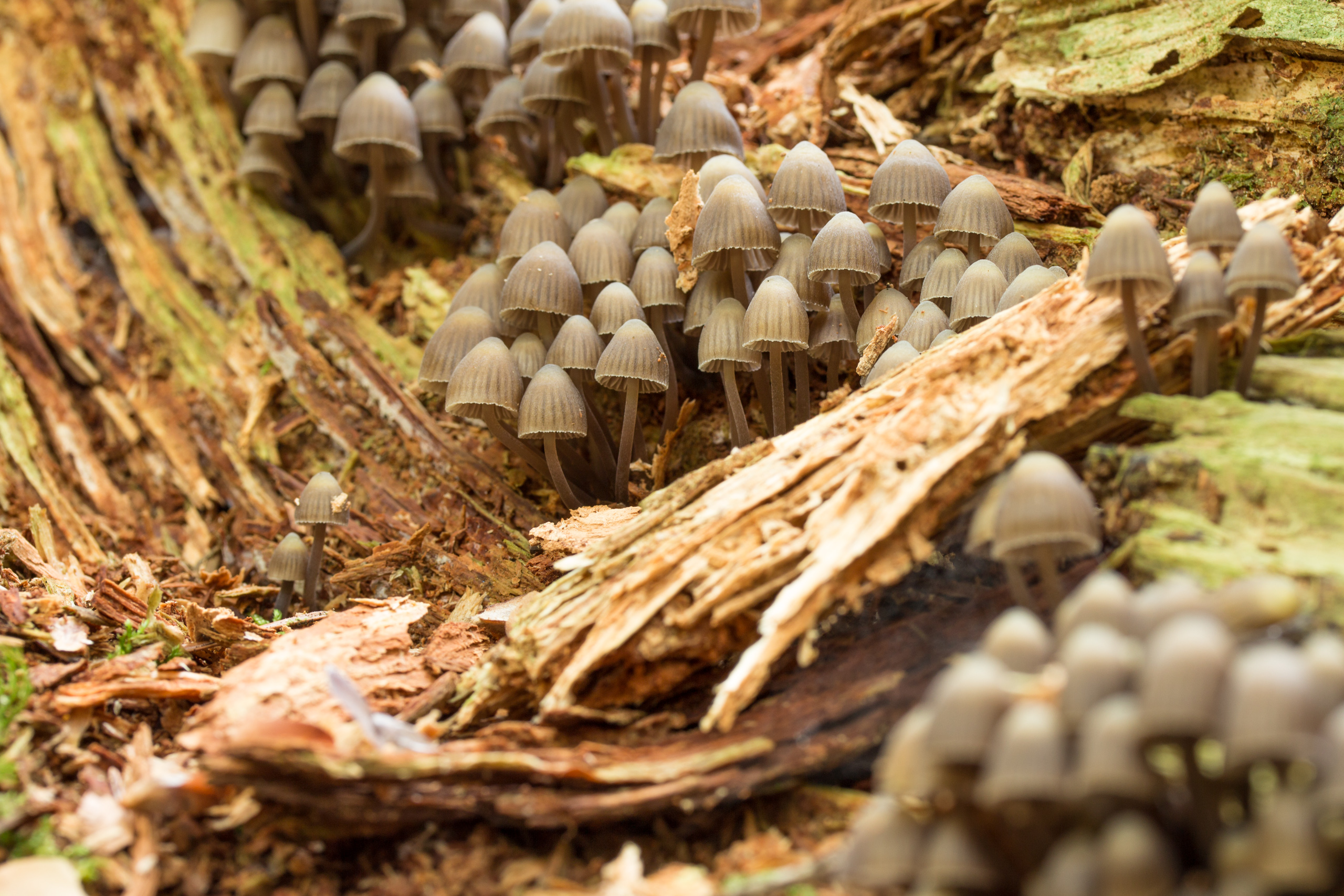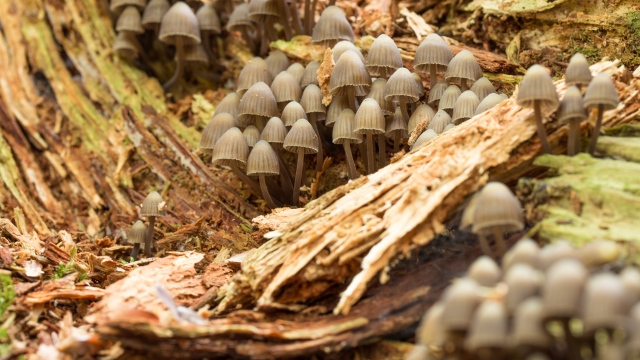
Mushroom growing has become an increasingly popular hobby for both nature enthusiasts and food lovers alike. There is something undeniably fascinating about the journey from spore to harvest, as we unlock the secrets of successful cultivation. Whether you have a spacious backyard or a small urban apartment, mushroom growing offers a unique opportunity to connect with nature and reap the rewards of your own crop.
Delving into the world of mushroom cultivation unveils a hidden universe teeming with complexities and ingenuity. From understanding the different varieties of mushrooms and their specific growing requirements to mastering the art of creating the ideal growing environment, there is much to explore and experiment with. With the right knowledge and techniques at your disposal, you can embark on a fulfilling journey of growing your own delectable mushrooms, indulging in their earthy flavors, and enjoying the satisfaction of a thriving harvest.
As you venture into the realm of mushroom growing, you’ll quickly realize that it is more than just a hobby; it is a science in itself. From choosing the right substrate to managing humidity and temperature levels, every step is crucial in ensuring the optimal conditions for mycelium growth. The importance of maintaining cleanliness and preventing contamination cannot be overstated, as these factors greatly influence the success or failure of your mushroom cultivation endeavors. However, with patience, attention to detail, and a willing spirit, you’ll find that the magic of mushroom growing unfolds before your very eyes.
In the following chapters, we will explore the ins and outs of mushroom growing, shedding light on the secrets and techniques employed by successful cultivators. From preparing the substrate and inoculating your growing medium to fostering the growth of healthy mycelium and ultimately harvesting your prized mushrooms, we’ll guide you every step of the way. So, grab your shovel, don your gardening gloves, and get ready to embark on an extraordinary journey into the fascinating world of mushroom cultivation.
Choosing the Right Mushroom Variety
When it comes to mushroom growing, selecting the right variety is crucial for success. The choice of mushroom variety determines not only the taste and texture but also the growing conditions required. With a wide range of mushroom varieties available, here are some factors to consider when making your selection:
-
Climate and Growing Conditions: Different mushroom varieties thrive in specific climates and growing conditions. Some mushrooms prefer cooler temperatures, while others require a warmer environment. It’s important to choose a variety that will be compatible with the climate and growing conditions of your area.
-
Skill Level and Experience: Consider your skill level and experience in mushroom cultivation. Certain varieties may be more suitable for beginners, as they are easier to grow and require less maintenance. On the other hand, some mushrooms may be more challenging and require advanced techniques. Assess your abilities and choose a variety that aligns with your skill level.
-
Desired Harvest and Usage: Each mushroom variety offers a unique flavor profile and culinary potential. Consider your preferences and intended usage of the harvested mushrooms. Are you looking for a mild taste or a more robust flavor? Do you plan to use the mushrooms in soups, stir-fries, or as a meat substitute? Select a variety that aligns well with your desired harvest and culinary preferences.
By carefully considering these factors, you can make an informed decision when choosing the right mushroom variety for your growing endeavors. Remember, each variety has its own requirements and characteristics, so researching and understanding their specific needs is essential for successful mushroom cultivation.
2. Creating the Ideal Growing Environment
To ensure successful mushroom growing, creating the ideal growing environment is essential. A conducive environment will provide the necessary conditions for mushrooms to thrive and produce a bountiful harvest.
Firstly, temperature control plays a crucial role in mushroom cultivation. Different species of mushrooms have varying temperature preferences, but most thrive in temperatures ranging from 55°F to 75°F (12°C to 24°C). Maintaining a consistent temperature within this range is vital for promoting healthy growth and preventing the development of harmful molds or fungi.
Next, humidity levels must be carefully regulated. Mushrooms require high humidity to develop and fruit properly. Generally, a relative humidity (RH) level of around 80% to 90% is recommended. Achieving this can be facilitated through various methods, such as misting the growing area or using a humidifier. Regular monitoring and adjustments may be necessary to maintain optimal humidity throughout the mushroom growing process.
Furthermore, proper air circulation is crucial for mushroom cultivation. Good airflow helps in preventing the accumulation of excess carbon dioxide and the growth of molds or contaminants. A gentle breeze or the use of fans can assist in promoting air circulation within the growing area. However, it is important to strike a balance, as overly strong air currents may have a negative impact on mushroom growth.
By creating the ideal growing environment with careful temperature control, the appropriate humidity levels, and adequate airflow, mushroom growers can maximize their chances of successful mushroom cultivation.
3. Harvesting and Maintaining Mushrooms
In order to ensure a successful mushroom growing venture, it is essential to understand the proper techniques for harvesting and maintaining these fascinating fungi. By following these guidelines, you can maximize your yield and enjoy the fruits of your labor.
First and foremost, timing is crucial when it comes to harvesting mushrooms. Each variety has its own ideal harvesting period, so it’s important to research and familiarize yourself with the specific requirements of the mushrooms you are growing. Generally, mushrooms should be harvested when the caps have fully expanded but before the veil underneath the cap breaks, exposing the gills. This ensures optimal flavor, texture, and nutrient content.
When picking mushrooms, it is advisable to use a clean, sharp knife or pair of scissors. Cut the stem close to the base, being careful not to disturb the surrounding substrate or mycelium. It’s important to handle the mushrooms gently to avoid damaging them, as this can lead to spoilage or deterioration.
How To Grow Psilocybe Cubensis
After harvesting, it is crucial to store the mushrooms properly to maintain their freshness and prevent them from spoiling. Mushrooms are highly perishable, so it’s best to consume them as soon as possible. However, if you need to store them, place them in a paper bag or a breathable container in the refrigerator. Avoid sealing them in plastic, as this can cause moisture buildup and accelerate decay.
By following these simple yet essential steps for harvesting and maintaining mushrooms, you can ensure a successful and bountiful crop. Remember to always practice proper hygiene and cleanliness throughout the process to minimize the risk of contamination. With patience and care, you will be able to enjoy the exquisite flavors and unique textures of homegrown mushrooms.
